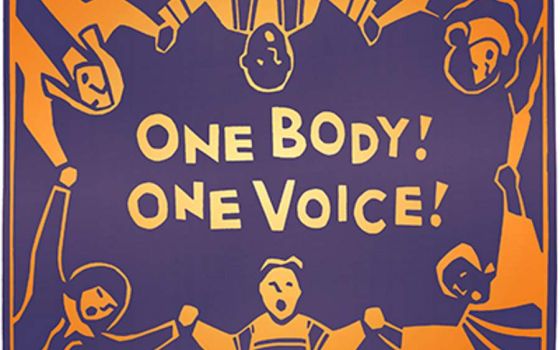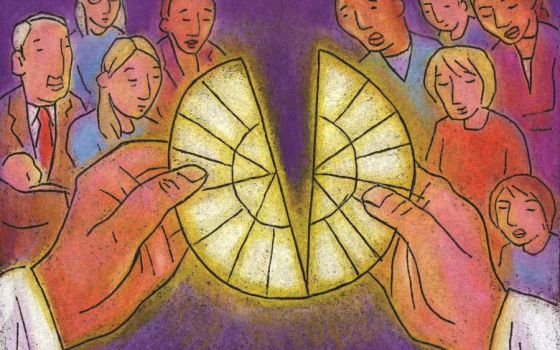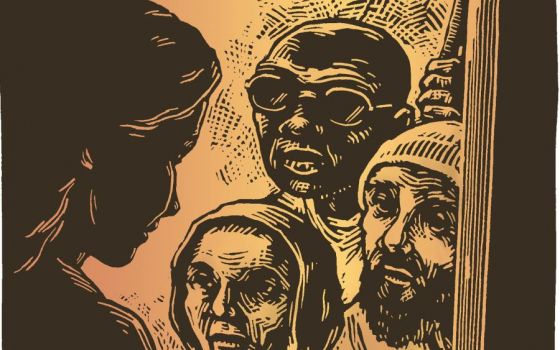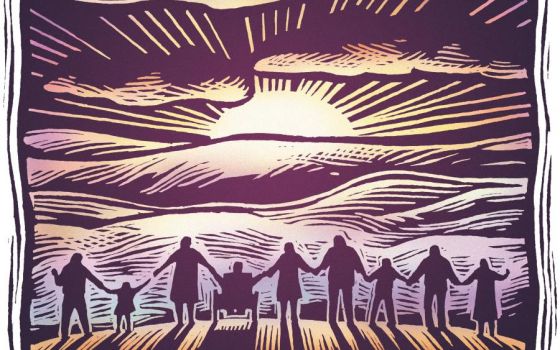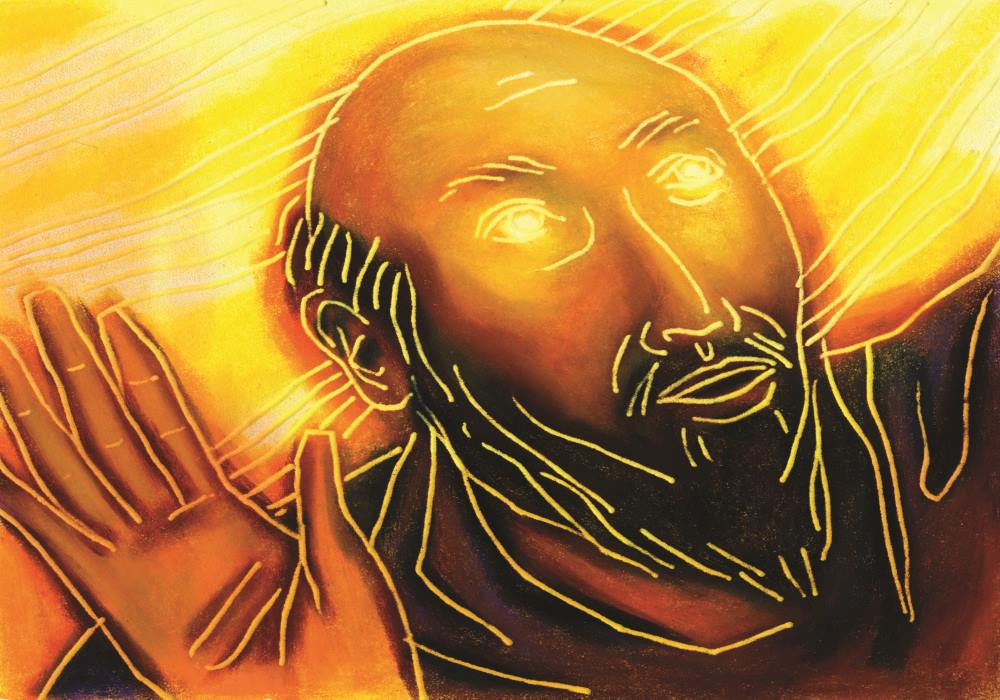
(Julie Lonneman)
A friend of mine works as a receptionist at a large metropolitan hospital. She arranges for and welcomes the 21 translators the hospital makes available for patients and their families. The 21 translators speak 21 languages. While the issue of immigration to America continues to be debated, our parishes, especially in larger cities, are dealing with the reality that congregations are made up of many people for whom English may well be a second or third language.
Pentecost, the birth of the church through the coming of the Spirit, opens the gift of peace to all. The Spirit whom Jesus sends us comes to each one in her own language, from his own culture and experience, and in her own heart.
During the Easter season we hear the comforting words of Jesus: "Peace be with you." This peace pushes and pulls us through the Fifty Days toward Pentecost and beyond to Ordinary Time. But there is nothing ordinary about peace. In some cases, peace has even become a volatile subject! We are even careful when we discuss peace for fear it may not be politically correct. Can our liturgies, during this season, be a time when we are allowed to "seek after peace and pursue it" by our words, actions, prayers and songs?
On a recent news panel, the host asked a guest if he was a "Beatitude Catholic." What a great question for each of us to ponder. "Blessed are the peacemakers" (Matthew 5:9).
Peace is more than the absence of war. Pope John Paul II, in writing "Peace with God the Creator, Peace with All Creation" (January 1990) about the ecological crisis as a common responsibility, proposed to us that peace will be present when there is a correct attitude toward the universe as a whole. Easter, Pentecost, Trinity Sunday and Corpus Christi are feasts that draw us into the gentle peace of Christ even as they awaken us to new life. We see new birth in the animal and plant kingdoms, as we welcome longer days of sunlight and warmer evenings to watch the stars on their journeys. "Christ has made all things new." We recognize our oneness with creation. We begin to see everything in creation as subjects rather than objects. This demands that we care for this amazing universe.
The eucharistic prayer and the preparation of gifts at Mass invite us each week to remember that we are one with the the earth. We are not about destruction but are a people of peace building up the Kingdom of God.
Consider the weeks from Easter to Pentecost and the feasts that follow it as an unfolding continuum. The Spirit's presence in the body of Christ, God as a community in the Trinity, the continuing presence of Jesus in the Eucharist — these feasts empower us for good. We experience in the prayers of the liturgy the Spirit's unlimited power. This power calls forth diverse ministries from the community. Parishes should make this the time in the church year when members of the community are helped to discern their own gifts. Together we then determine how to use these gifts in and for the parish community.
Pentecost is an expansive festival. Historically, in Jewish celebrations, the 50th day after the Passover was the feast of booths, when all the assembly was sprinkled with water and all prayed for the fruitfulness of the earth. Pentecost is the natural extension of Easter, just as confirmation is the natural extension of baptism. The sprinkling of water reminds us that no matter where we come from or whatever languge we speak, we have all "put on Christ" in the common waters of baptism.
The feast of Pentecost provides an opportunity for parishes to acknowledge their diversity, to sing such hymns as "All Are Welcome" or "Gather Us In." If a parish is not ethnically diverse, it may be a time for us to ask why this is so. How can a parish acknowledge the concerns of the immigrant peoples — those who may be settled in after many years, those who have come more recently, or those who are here because of circumstances beyond their control? Can we put aside our political biases for an hour on Sunday, and truly be the body of Christ ?
Advertisement
At the entrance of a church I visited this summer, there was a large bulletin board that said "Welcome" in 28 different languages. In that way, even before entering the actual worship space, all knew they were invited and called to be part of their parish family. Could streamers of various colors or countries be hanging outside the church as we park our cars, walk up the sidewalks and enter the gathering space? Perhaps another part of the church building could host ethnic food booths after Mass. Here all could come to feast together after having already shared the bread of life together.
The time from Easter through Pentecost is all part of the same continuum. We take part in the entire movement from beginning to end. Building on our own faith, we come to know more deeply the Christ, the anointed One. This same Christ calls us to be people of life, people who carry within them the Easter light, people ready to welcome all with the words, "Peace be with you."
Editor's note: This reflection was originally published in the June 2006 issue of Celebration. Sign up to receive daily Easter reflections.



